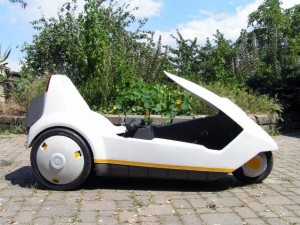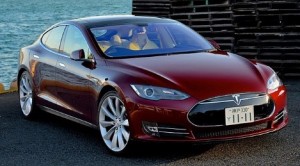We all know of some crazy ideas that inventors come up with- often they are the subject of funny YouTube videos. However, some ideas seemed crazy at the time and yet, years later are a reality. This week’s post takes a look at innovative ideas that were scorned and are now part of our everyday life.
Eccentric Entrepreneurs are today’s Mad Professors
Innovation is not always well received; we can be a cautious bunch and often ridicule that which is unfamiliar. This can range from inventions to music, to film genres, to food.
 Sir Clive Sinclair was a one of the UK’s best-known millionaires and earned a knighthood on the back of the highly successful Sinclair Research range of home computers in the early 1980s.He developed the Sinclair C5 the first battery powered vehicle; not quite a car, not quite a bicycle
Sir Clive Sinclair was a one of the UK’s best-known millionaires and earned a knighthood on the back of the highly successful Sinclair Research range of home computers in the early 1980s.He developed the Sinclair C5 the first battery powered vehicle; not quite a car, not quite a bicycle
The C5 became known as “one of the great marketing bombs of postwar British industry”[ and a “notorious … example of failure” Despite its commercial failure, the C5 went on to become a cult item for collectors.
https://en.wikipedia.org/wiki/Sinclair_C5
Figure 1By Tesla Model S Japan.jpg: ranekoderivative work: Mariordo – This file was derived from Tesla Model S Japan.jpg:, CC BY 2.0, https://commons.wikimedia.org/w/index.php?curid=37533158
The very idea of electrically powered cars was scoffed at and yet, in the 21st century the development of electric cars and hybrids is now the fastest growing area of motor vehicle research.
Granted- most of us would rather drive the Tesla Model S than a C5!
When is eccentricity foresight and innovative thinking?
Back in 2000 a British singer songwriter called Craig David released a single called RE-Rewind and became the subject of a caricature named after him of Bo Selecta. This was the first time that the music genre “garage” had hit the music scene. It was an unusual song, alien to many ears but received much acclaim…although the lampooning of David on the TV series became excessive. Craig David himself now denies that it forced him to leave the UK but for a period of time he disappeared from the British music scene preferring to write songs for others. This year he had extraordinary success with a song called “When the bassline drops” and he is no longer seen as an eccentric caricature but as a worthy musical artist- the public’s taste in music has finally caught up with his style! Throughout the centuries artists of every persuasion have always been striving for innovation and it is not always well received. The Beatles, for example were greeted with hysteria and condemnation in equal measures and the hippy movement of the 1960’s preaching peace has now achieved respectability with many people supporting peace movement organisations.
We have eccentric entrepreneurs (Wright Brothers, Branson and Stelios) to thank for our holiday choices; the fact we can actually fly anywhere, quite cheaply, the de-regulation of airlines; competition and the break-up of travel agent and airline monopolies.
Qualities of an eccentric entrepreneur
Innovation is not just the pre-requisite of eccentricity but it does require a leap of faith and bold ideas. Entrepreneurs are by nature, risk takers and do not much mind what others think of them. They are fired by a passion that believes there is a better way, a different way, and obstacles are merely hurdles to overcome. They take existing processes and apply them elsewhere- for example Avent Baby bottles. Mothers everywhere are thankful that Edward and Celia Atkin, upon becoming parents, were not content with the existing teats and bottle design which their newborn struggled with. Edward worked in rubber manufacturing and he set about creating teats that were more appealing to his child- and redesigned the bottles to go with them. Celia was the marketing mastermind behind the launch of Avent and Phillips bought the company from them for billions in 2006. Eccentric simply means unconventional and innovation arises from unconventional thinking.
 Eccentricity is celebrated by film maker, Nick Parks, creator of Wallace and Gromit, whilst at the same time Nick himself is truly innovative in his approach to animation. Who would have thought that humble clay could bring us so much pleasure?
Eccentricity is celebrated by film maker, Nick Parks, creator of Wallace and Gromit, whilst at the same time Nick himself is truly innovative in his approach to animation. Who would have thought that humble clay could bring us so much pleasure?
Eccentric entrepreneurs revel in a challenge – tell them a thing cannot be done and they go all out to prove you wrong. Business could do with adopting that approach- instead of “We can’t do this” a more proactive and innovative approach would be, “How do we overcome the challenges of doing this?”


